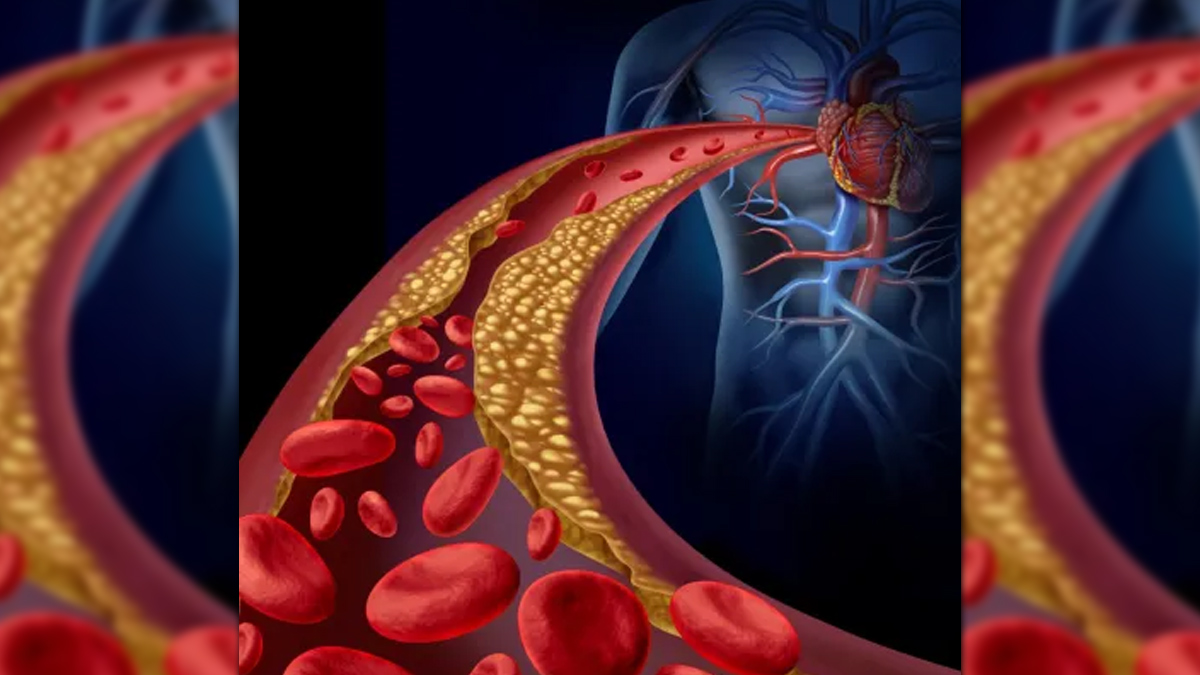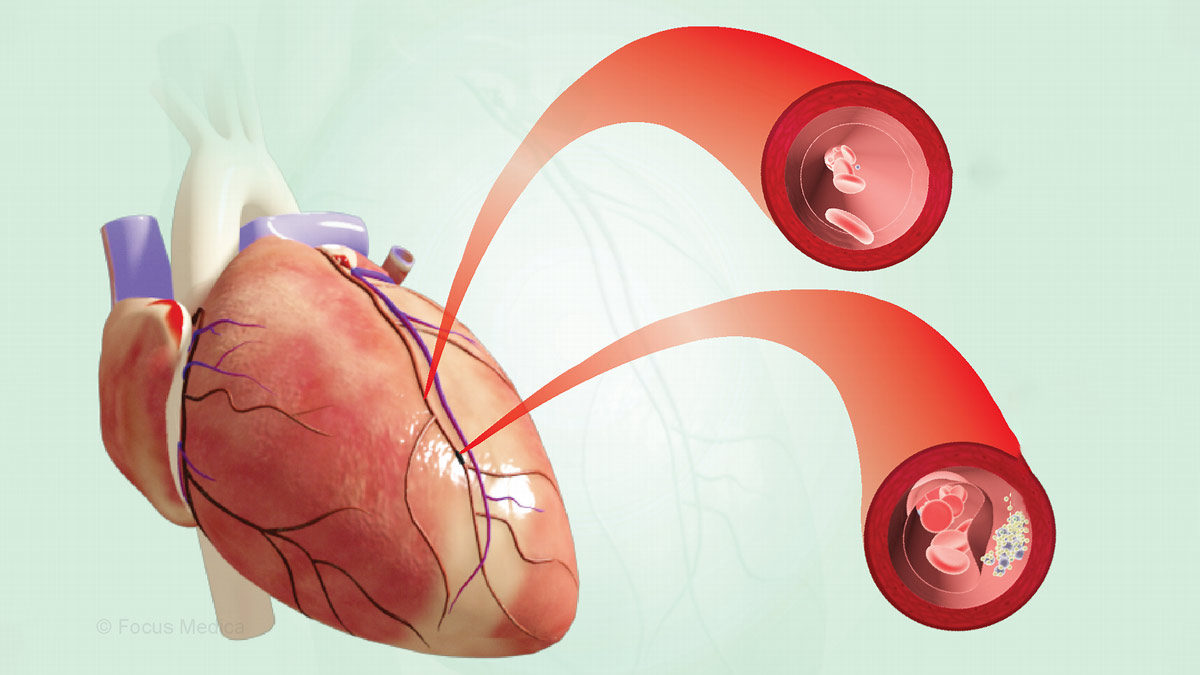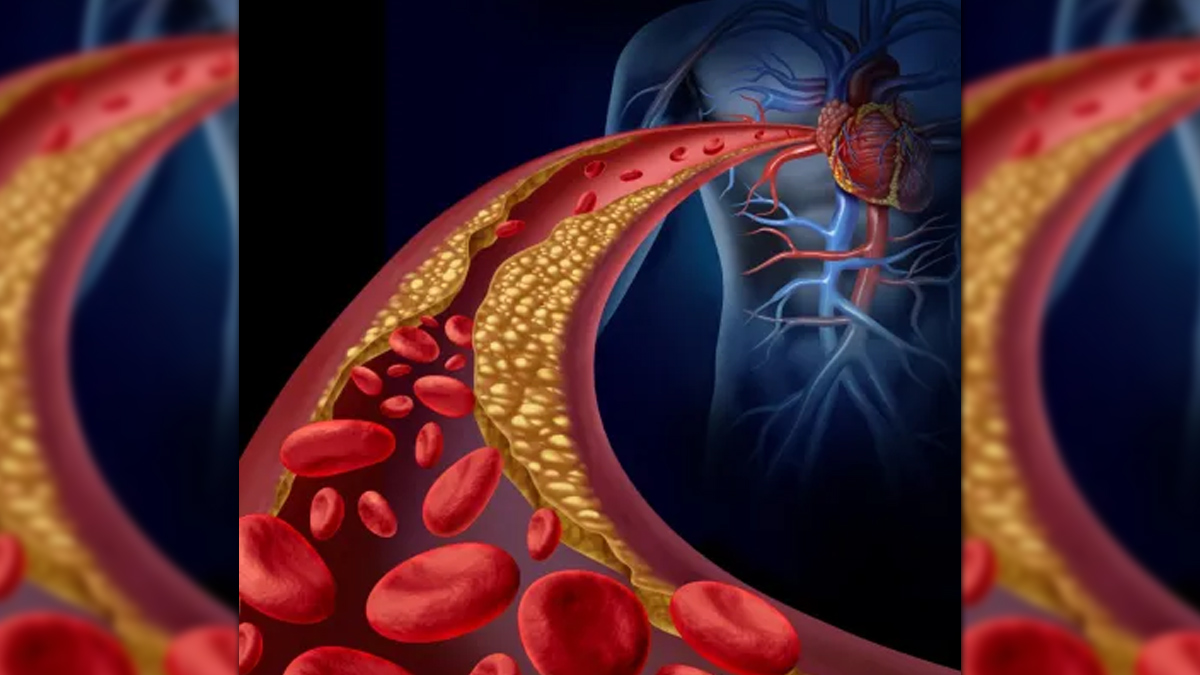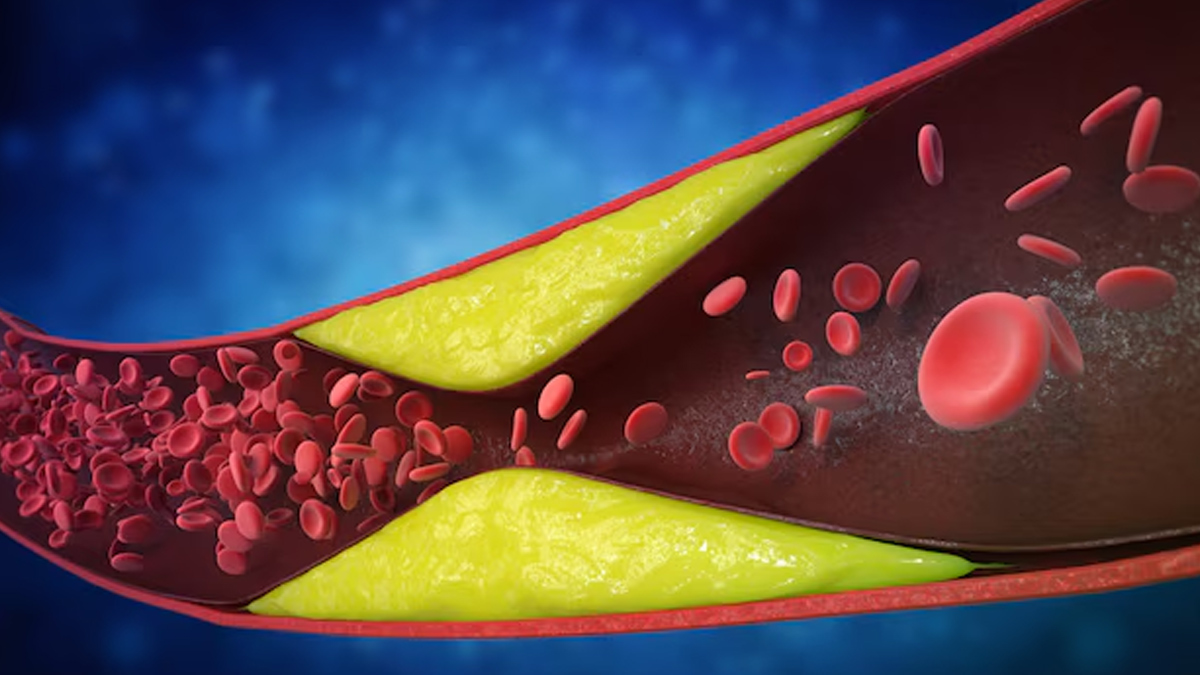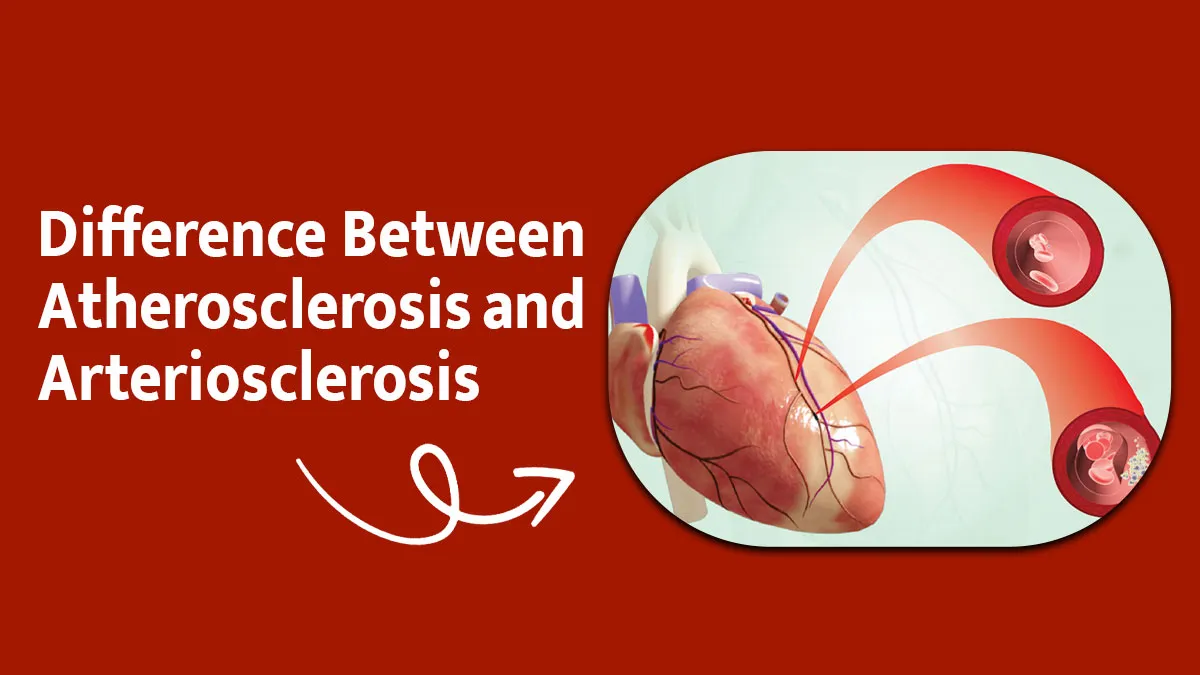
When it comes to heart health, you’ve probably heard the words arteriosclerosis’ and ‘atherosclerosis’ tossed around. They sound similar, but they aren’t the same thing. Both affect your arteries. It is the blood vessels that carry oxygen-rich blood from your heart to the rest of your body. Knowing the difference can help you know what to watch for and how to protect your heart. Read ahead to understand what each term really means, how they’re connected, and which one you should be more concerned about.
Table of Content:-
What’s the Difference Between Arteriosclerosis and Atherosclerosis?![Atherosclerosis vs Arteriosclerosis 4 (87)]()
Dr Nischal N Hegde, Interventional Cardiologist at Bangalore Hospitals, explains it simply: "Arteriosclerosis is a general term for thickening or hardening of the arteries, usually from ageing. Atherosclerosis is a particular form of arteriosclerosis resulting from the deposition of fatty material (plaques) within the arterial wall. All atherosclerosis is arteriosclerosis, but not all arteriosclerosis is atherosclerosis."
At Bangalore Hospitals, its cardiology department uses a 640-slice CT scanner, which can scan the entire heart in about three seconds. This technology supports non-invasive and accurate detection of coronary artery disease, making it a valuable tool for early diagnosis and monitoring of heart conditions.
Consider arteriosclerosis as a general term, such as "fruit," and atherosclerosis as a particular type, such as "apple." All apples are fruit, but not all fruit is apples. Similarly, all atherosclerosis is arteriosclerosis, but not all arteriosclerosis is atherosclerosis.
How Do These Conditions Affect Your Heart?![Atherosclerosis 2 - 2025-07-10T152341.186]()
Both conditions make your arteries less flexible. But atherosclerosis is the one that can really cause trouble. Dr Hegde says, “Atherosclerosis narrows the arteries and can block blood flow, especially to the heart and brain, making it a more clinically serious subtype requiring early detection and management.”
For example, imagine a garden hose. If the hose gets stiff (arteriosclerosis), water might not flow as easily. But if the hose gets clogged with debris (atherosclerosis), the water could stop altogether. In your body, this can lead to a heart attack or stroke.
What Causes Arteriosclerosis and Atherosclerosis?![Atherosclerosis and Arteriosclerosis causes mn - 2025-07-10T152337.305]()
Both conditions are linked to similar risk factors:
- Aging
- High blood pressure
- Smoking
- High cholesterol
- Diabetes
- Lack of exercise
Dr Hegde explains, “In atherosclerosis specifically, these factors trigger inflammation in the arteries, leading to plaque buildup. Over time, these plaques can harden, rupture, and cause blood clots, potentially leading to heart attacks or strokes. Genetic predisposition, poor diet, and chronic stress can also accelerate the onset and progression of these vascular conditions.”
ALSO READ: What Is the Main Cause of Myocardial Infarction? Doctor Explains
Which One Is More Dangerous?![Arteriosclerosis 2 - 2025-07-10T152341.186]()
Atherosclerosis is the bigger threat. While arteriosclerosis is mostly about stiffening, atherosclerosis can actually block blood flow or cause clots that travel to important organs. Dr Hegde says, “Atherosclerosis is considered more dangerous due to its direct role in life-threatening conditions like heart attacks, strokes, and peripheral artery disease. It often progresses silently, making early detection and preventive care crucial.”
A study in the journal Circulation found that atherosclerosis is the leading cause of cardiovascular deaths worldwide, and it often develops silently over the years before causing symptoms.
How Are These Conditions Treated?![Atherosclerosis and Arteriosclerosis 3 - 2025-07-10T152335.808]()
Treatment begins with lifestyle changes:
- Eat a heart-healthy diet
- Exercise regularly
- Stop smoking
- Cope with stress
Medications may regulate blood pressure, cholesterol, and blood sugar levels. In severe cases, operations such as angioplasty, stenting, or even bypass surgeries might be indicated. Regular check-ups and preventive screening, particularly if you are at risk, are highlighted by Dr Hegde.
ALSO READ: New Diabetic Barbie Doll with Type 1 Diabetes, Glucose Monitor and Insulin Pump Launches
Takeaway
Both arteriosclerosis and atherosclerosis damage your arteries, but atherosclerosis is the one to be careful about. It's stealthy and can cause major issues such as heart attacks and strokes. The best part? Healthy lifestyle choices and frequent doctor appointments can work wonders in keeping your arteries free and your heart healthy.
Also watch this video
How we keep this article up to date:
We work with experts and keep a close eye on the latest in health and wellness. Whenever there is a new research or helpful information, we update our articles with accurate and useful advice.
Current Version
-1752141355494.jpg)
